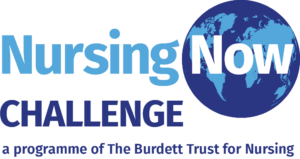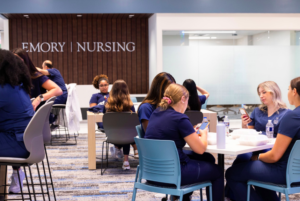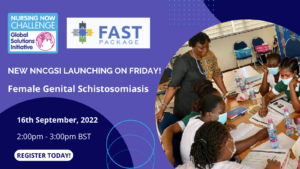Communication: The cornerstone to providing quality person-centred care
This blog was written by Sue Foster, a Registered Nurse, Nurse Educator and Trainer with Health Action Training Ltd, Northern Ireland.
I always knew I would be a nurse, it was predestined. After living abroad and traveling for several years, I decided to return home to Ireland to do Nursing. I wanted to do something that was challenging, giving me the opportunity to seek and absorb new information, embrace my strength of compassion and make a difference. That was back in 1989 and a personal journey I hold close to my heart.
For the first year or two after qualifying as Registered Nurse I was unsure which area to specialise in. Then I had the opportunity to spend six months volunteering in Calcutta, India. Whilst working in Kalighat Hospice for the Sick, Destitute and the Dying I was inspired and honoured to work alongside Mother Theresa and the missionary sisters; they embodied true compassion. No one was more important to them than the person in front of them. The people brought to the Kalighat Hospice were given the opportunity to die with dignity. It was from that wonderful experience of witnessing the application of personhood in such challenging circumstances that I chose to work in palliative and end of life care. For the last 22 years I have worked in in this specialty as a Nurse Specialist, a Lecturer in Palliative Care and as Head of Hospice Education and Research.
In 2008 I took the leap into nurse education. Palliative Care was a growing specialty and the time for transition was right. As a Nurse Educator I was able to bring years of practice experience to my teaching. Practice experience and life experiences enrich the discussion and experiences I can create for learners. Becoming a Nurse Teacher instilled in me a sense of pride and personal gratification that comes from witnessing people grow and transform. Most importantly having the opportunity to shape the next generation of nurse leaders in a big privilege.
Regrettably, interpersonal communication or lack of it, remains one of the most central issues of modern healthcare. Irrespective of the environment, mode of delivery or client group the expectation is that communication in healthcare must be a positive human to human experience. I was fortunate to work and study alongside practitioners, role models (including Mother Theresa’s team); admiring their thoroughness, competence, compassion and communication skills. I learned and shared the value of having open conversations about death and dying, breaking bad news, finding out what people’s wishes are ahead of time, putting affairs into order and building a therapeutic relationship focusing on the patient and those that matter to them.
My experiences in Palliative Care Education has brought me the opportunity to work alongside colleagues from Canada, New Zealand, Nepal, USA, Latin America and Europe. One fantastic project was the delivery of teaching and assisting in the development of undergraduate palliative care curriculum in Romania. This collaboration was supported by the European Association of Palliative Care who provided the recommendations for the curriculum. With colleagues form Northern Ireland Hospice and the University of New Mexico we established Project ECHO NI (Extended Community Health Outcomes), a concept which fosters a spirit of learning from each other in a safe environment where everyone is a teacher – everyone a learner. I often equate this project to the analogy of ‘Lessons from Geese’ and how our work can create uplift for those that follow. As humans and Health Professionals need each other and no one person can do it alone; the importance of flying as team cannot be underestimated.
In 2019 I was introduced to the new concept of Health Action Training (HAT). Role play and experiential learning as strategies were not new to me, methods I had used many times with learners. However, the application of techniques drawn from actor training and applied drama is intriguing. I see HAT as empowering, helping learners to practice actions in a ‘safe space’, co-creating and working together instilling confidence. It is a fresh and novel approach to communication skills training and one which explores the concept of sympathetic presence, attention and intentional action in a way that no other method does.
As a nurse of more than 30 years standing, I believe communication is at the heart of what we do as nurses. One lesson I will take from my career is that communication is core to providing quality person-centred care. Although often taken for granted it requires practice and development. What is important about effective communication is not the quantity, but the quality of those exchanges which make sure patients and families receive care consistent with their preferences, sharing decisions and being therapeutic.




